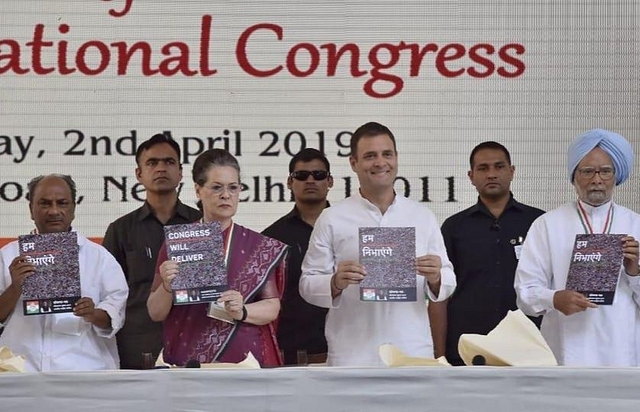
Despite Lt Gen Hooda Stressing Its Importance, Congress Omits Demographic Change From Party Manifesto
Lt Gen D S Hooda, the man who oversaw the September 2016 surgical strikes, recently submitted a report on national security to the Congress president Rahul Gandhi as the head of a task force set up by the Congress to prepare a national security strategy document.
In the wake of the criticism regarding the mention of the Armed Forces (Special Powers) Act (AFSPA) in the Congress election manifesto, Gen. Hooda has gone on record to say that the document he submitted did not mention AFSPA.
‘There is no mention of AFSPA as far as my report is concerned. Nor is there any reference to the number of troops who are required to be there in the (Kashmir) Valley because I think these are steps which will come after we have a broad strategy in place,’ Lt Gen Hooda told NDTV in an interview.
While Gen. Hooda’s comments on the AFSPA were carried widely, a briefly-mentioned point escaped widespread attention. Briefly touching the aspects he covered in the national security document he submitted, Gen. Hooda also said, ‘Not only the military...this document talks about climate change, technology disruption, managing our demography, reducing income inequalities, improving cyber capabilities and improving police intelligence’.
It is refreshing to see points such as climate change and demography in the national security discourse but what is ironic is that while the Congress party included the review of AFSPA in their manifesto, it excluded anything related to demographic changes, despite Gen. Hooda mentioning it.
Demographic changes in India is considered a pressing issue but failed to find a mention in either the ‘National Security’ or the ‘Internal Security’ section of the manifesto.
The illegal immigration in the North Eastern states and the demographic changes in the South (such as in Kerala) that have coincided with the rise of radical Islam, such as in Kerala that has frequently made headlines with its youth joining the Islamic State.
Swarajya’s December 2018 issue was devoted to the subject of demographic changes.
Likewise, the climate change’s national security implications have also been acknowledged the world over.
So while it is certainly refreshing to see issues like the climate change and demography in the Congress-commissioned national security document, the absence of these points in their manifesto does not inspire much confidence.